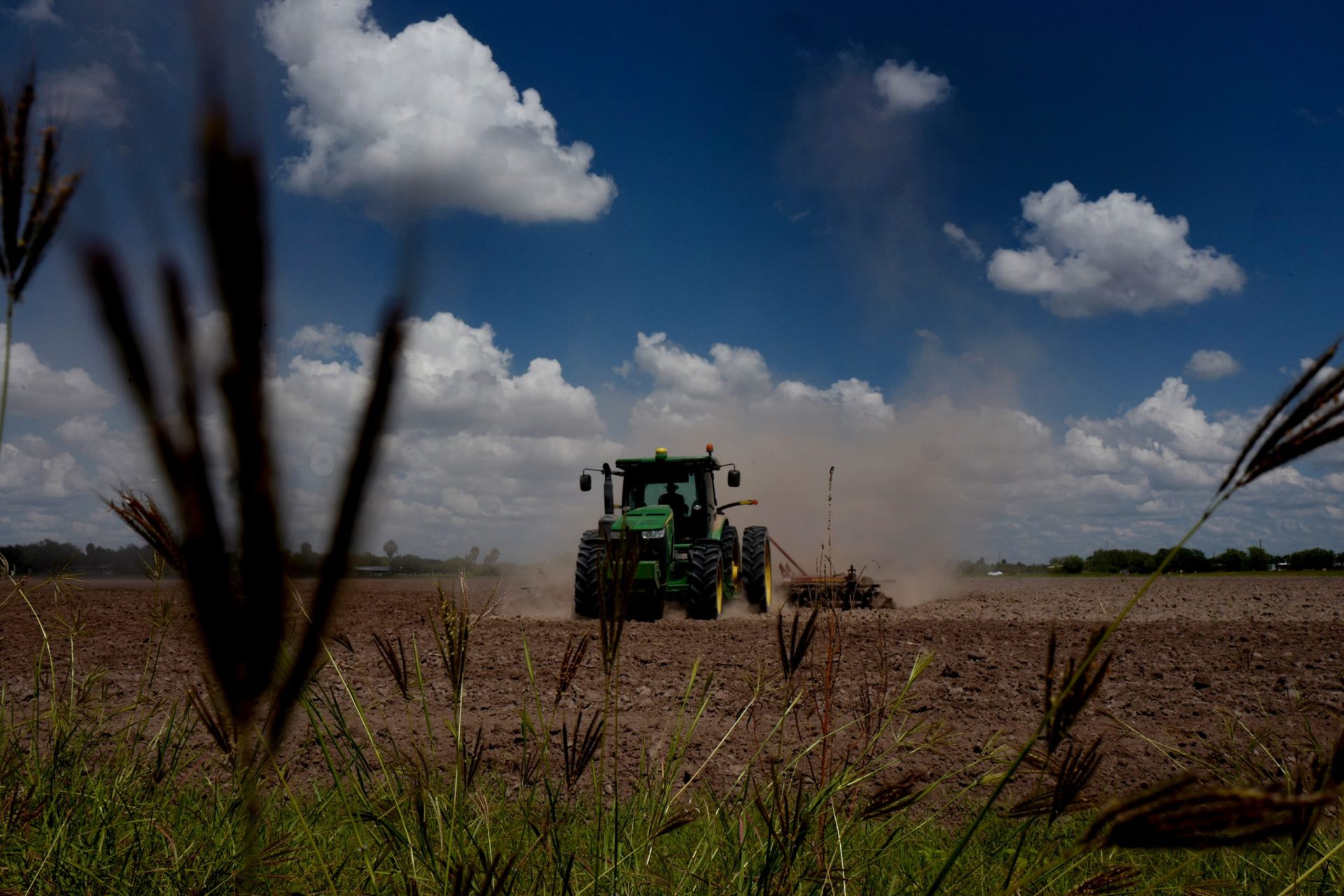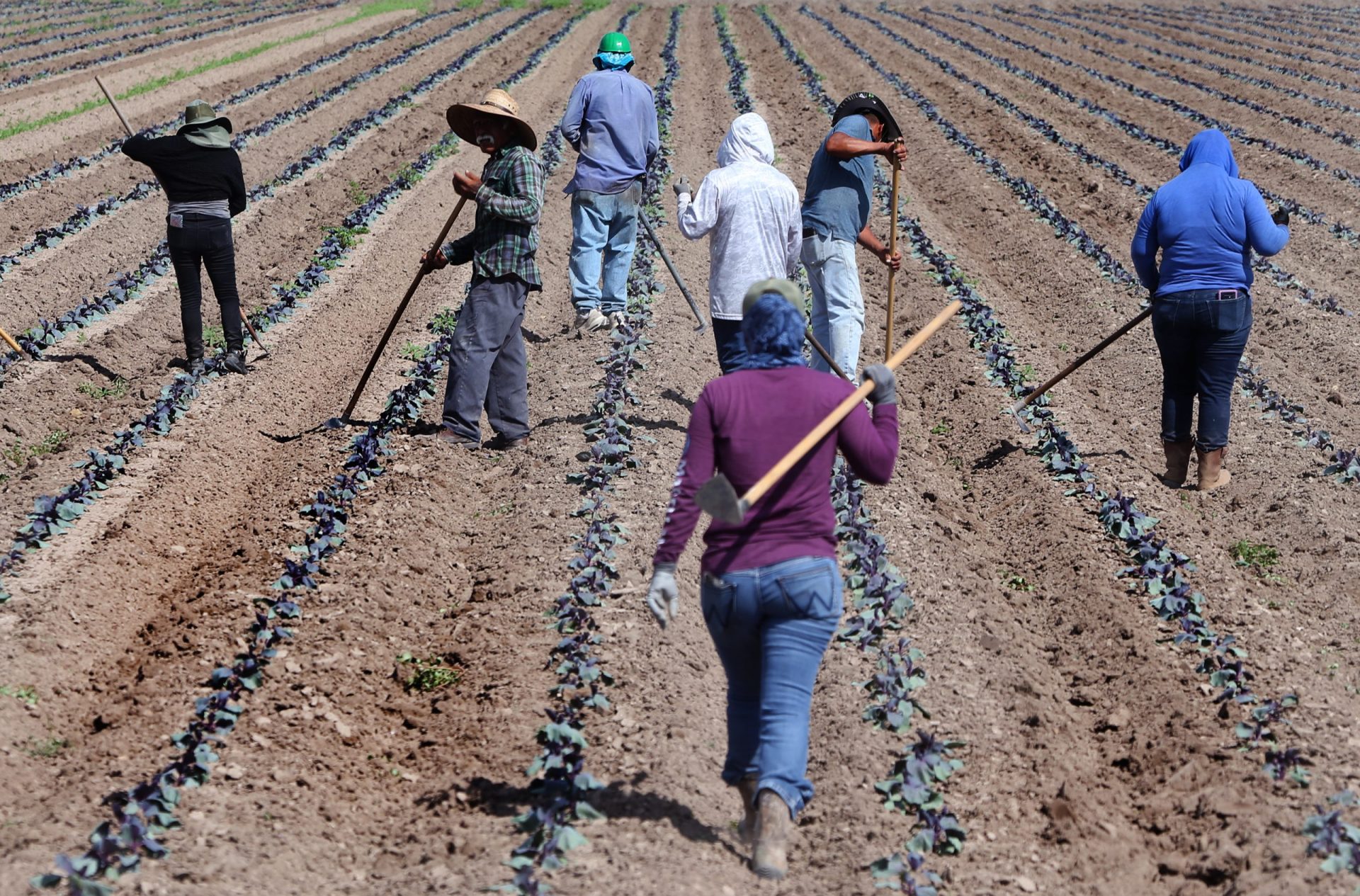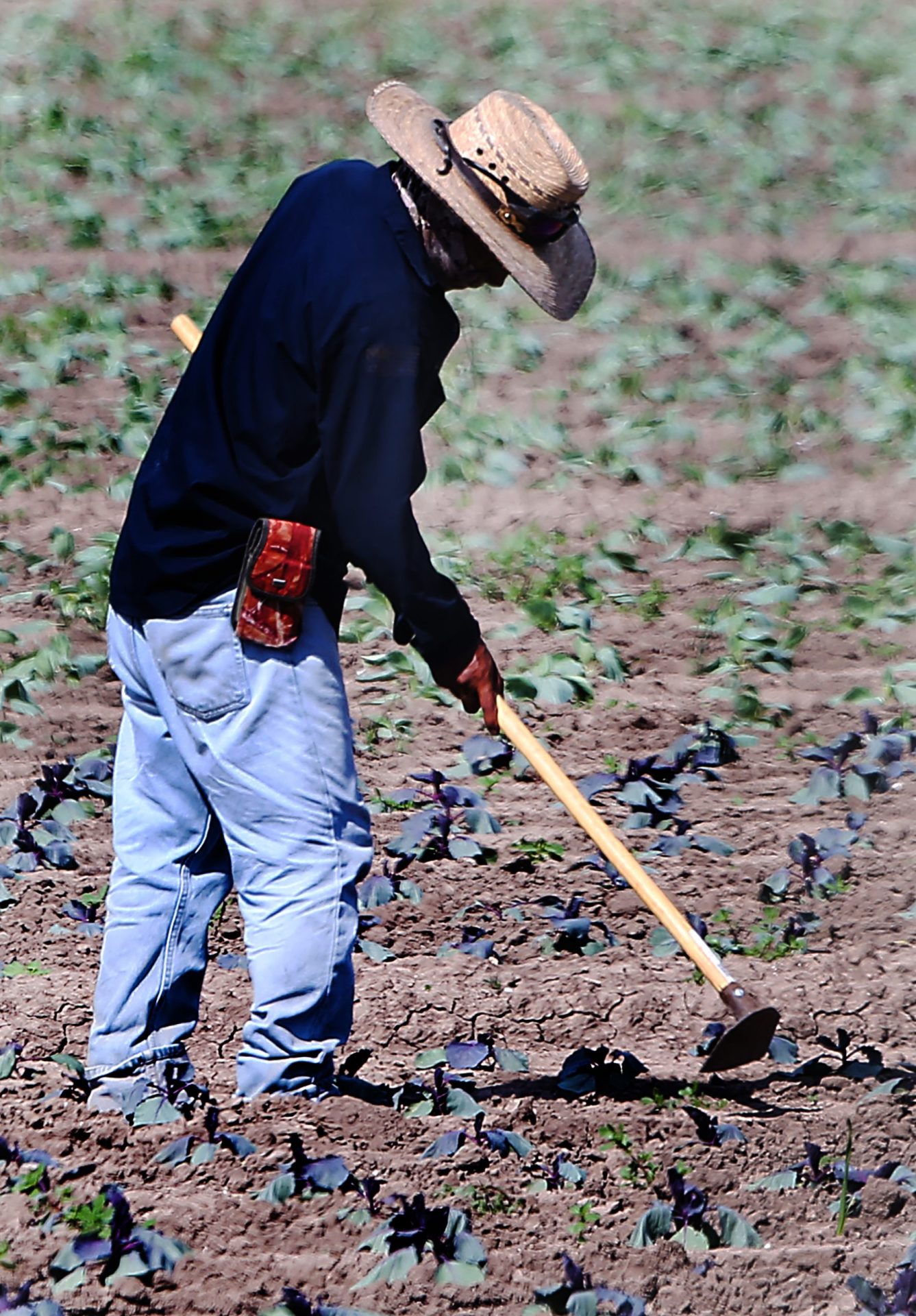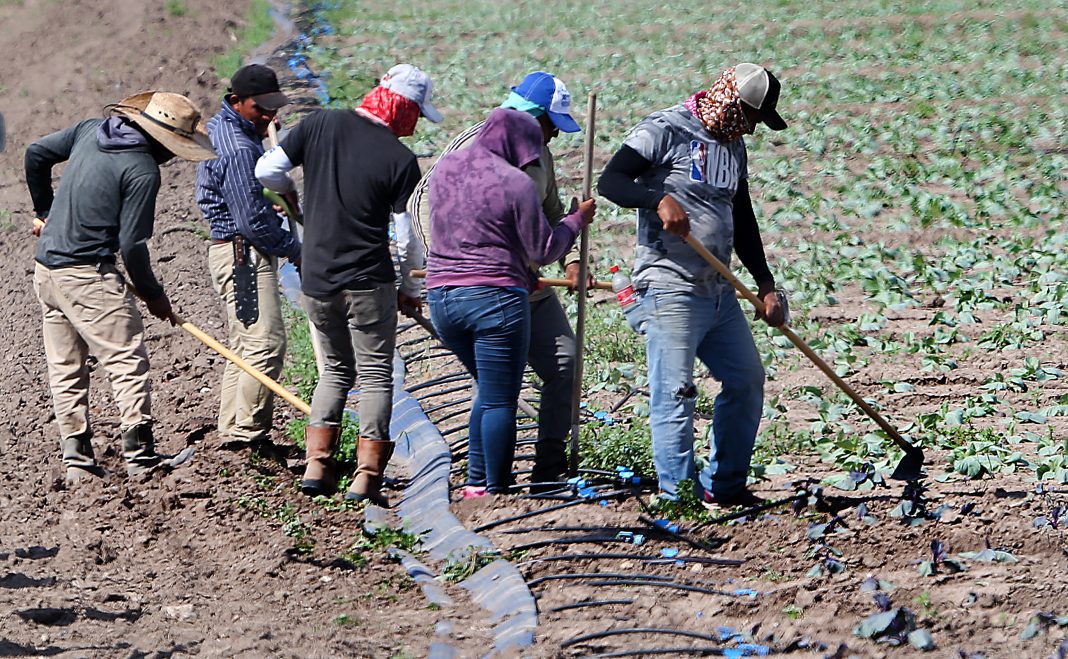For years, farmers and growers adjusted to a shrinking labor pool and increasing operating costs, but squeezed by pandemic-induced inflation and a weakened supply chain, they warn of an imminent disruption to the frail balance between supply and demand.
“Eventually, something’s going to break,” Bret Erickson, vice president of business affairs for Little Bear Produce, said Thursday.
Erickson, a local grower, held a news conference Thursday designed to warn the American public about the peril the agriculture industry is facing — and it’s one that could be shared with the consumer if elected officials fail to act.

The challenges, while not new, intensified under the pressure of a stressed global economy.
“For having done this the last 20 years, it has never been more important than it is today, especially with inflation and the supply chain issues that we’ve experienced,” Erickson said.
Little Bear Produce experienced a 20% to 25% increase in cost in recent years, compared to the pre-pandemic annual increase of 2-3%.
“The price of fruits and vegetables has increased between 12% and 15%.There’s still a gap that has yet to be made up. That’s coming for U.S. consumers,” Erickson said.
Meanwhile, production costs have increased for companies like his.
“Fertilizer, pallets, plastic boxes, wax boxes, twist-ties, harvesting tools, chemicals that we use, pesticides — all of those items have increased dramatically,” he said. “There’s only so much that a grower can absorb in the cost before it has to be passed on.”

Thursday’s event was meant to stress support for the Farm Workforce Modernization Act and featured other speakers, including Dante Galeazzi, president of the Texas International Produce Association, Gerry Garcia, vice president of special projects & government affairs at McAllen Chamber of Commerce, Edinburg Mayor Ramiro Garza and McAllen Mayor Javier Villalobos.
The act would alter some immigration regulations surrounding farmworkers.
As the American Immigration Council explained, the bill “would establish a program through which certain undocumented farmworkers in the United States could earn legal status; reform the H-2A temporary agricultural worker program; and establish an E-Verify employment eligibility verification system for all agricultural employment.”
Growers working under the current immigration restrictions feel outpaced by demand.
Little Bear Produce grows fruits and vegetables with varying timelines for the harvest season. Most of their workers are employed through the H2A temporary agricultural worker program.
“You have to apply months in advance. Being in agriculture, you don’t always necessarily know exactly what day you’re going to get started,” Erickson explained.
Americans were hired to do the job more often years ago than now.
“When farmers post hiring notices for low-skilled labor in areas like planting, cultivating, or harvesting, U.S. workers take those jobs only 6 percent of the time, according to the Department of Labor,” Galeazzi wrote in an op-ed piece. “This leaves farmers with few options, and they’ve become reliant on visa programs like H2-A, which brings in foreign workers to fill temporary agricultural jobs.”
Hiring through the program is costly and complicated, Erickson said.
“There’s application fees. There’s lawyers fees. There’s visa fees. As an employer of H2A workers, you also are responsible for their transportation from their home country to the working location,” Erickson added. “You have to provide housing for them at no charge to the worker; that’s at our expense. Getting them to and from their housing out to the farm. You have to have buses or vans. You have to have insurance. You’re paying for fuel to move them. You need to provide them with food.”

Under the bill, visas would make H2A visas valid for three years and would change the wage calculation for workers according to their agricultural operations, like crop work, livestock workers, etc.
Farmworkers, who are not in the country legally, would stand to benefit from the act by gaining a pathway toward citizenship.
“Another key provision of the bill would be the addition of 40,000 new immigrant visas for “unskilled” workers to the permanent employment-based immigration system’s third-preference category, meaning that an additional 40,000 unskilled workers could adjust to LPR [legal permanent resident] status each year,” the American Immigration Council explained in its factsheet.
The act gained bipartisan support when it went before the House of Representatives in March 2021 and found favor from 30 Republicans and 217 Democrats, among them were all Valley representatives. And although U.S. Rep. Mayra Flores, a Republican, had not yet been elected, she sent her new district director to Thursday’s press conference to lend her support to the cause.
But now the bill will go to the senate, where bipartisanship is rarely found.
“I know a lot of times they fight, and I’m talking about the Republicans and Democrats up in Washington, and make any issue political to divide and conquer, in a sense. But this is one where they have to work together for the benefit of the country.”

As growers wait for change, imported fruits and vegetables are becoming stronger competitors.
“A company like ours, we do face a lot of stiff competition from Mexican producers who are growing cilantro, chard, or spinach and crossing that product into the United States in the same time frame that we are growing that product here in Texas,” Erickson said. “When we’re paying $14 or $15 or $20 an hour, after administrative costs and housing, but in Mexico they’re being paid $20 a day, it is very difficult to compete with that.”
Erickson, who is part of the International Fresh Produce Association and Texas International Produce Association, will head to Washington D.C. next weekend with nearly 400 other producers from around the country to continue to push the legislation.
They’ll be marching on Capitol Hill “basically beating the drum on ag labor reform,” Erickson said.
The Monitor reached out to Texas Sens. John Cornyn and Ted Cruz for comment. Cornyn’s office aide said the senator was unable to respond by deadline and Cruz’ office did not respond.




